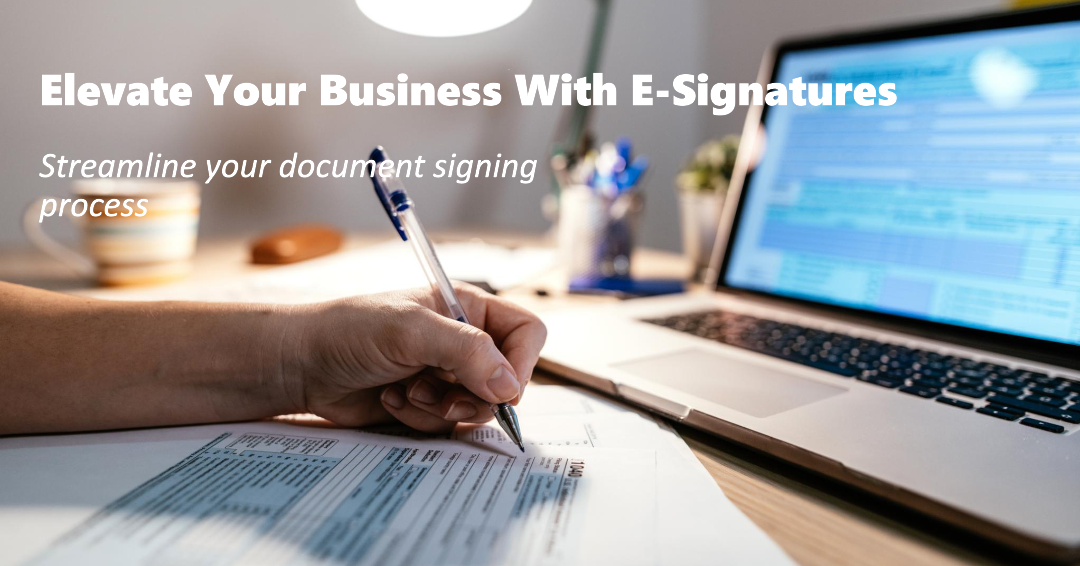E-signatures are actively replacing handwritten signatures in the business spheres. E-signatures are electronically created and preserved signatures that hold authenticity and legal value. These signatures are also encrypted using the latest technology, which ensures they are not misused by other individuals.
E-signatures offer significant liberty to businesses as the authorities can sign documents without having to be present somewhere. However, ensuring the legal validity and security of the e-signatures is extremely crucial. There are various types of e-signatures, and you can pick the most secure and authentic one for your business setup. You can refer to professional experts for further guidance if you are not sure about the security of the e-signatures.
Get into the details of this article to learn and explore which type of e-signatures are suitable for your business and opt for the right solutions.
Top 6 Types of E-Signatures You Can Explore For Business
E-signatures are becoming quite common due to their greater feasibility and accessibility. However, ensuring security and identity verification is crucial to boost authenticity. Not all types of e-signatures offer that. Therefore, you must explore the details and even consult experts if you must to make the right choice.
Here are the major types of e-signatures you can explore and opt for your business to boost its efficiency.
1. Standard E-Signatures
Standard e-signatures are the basic type of e-signatures with limited security and legal requirements. Even then, such signatures are legally validated across the globe. They offer limited protection against document tempering. Standard e-signatures are usually only used for online account signing.
These signs can be refuted because of limited security protocols, which is why they are not used quite commonly. Using this type of e-signature can commonly lead to legal complications if someone copies it or impersonates you. Most authorities consult Kofax UAE to get secure e-signature software and avoid potential security and tempering issues.
2. Simple E-Signatures
Simple e-signatures are the next type of e-signatures that business organizations should be aware of. These are simply electronic signatures which are saved electronically and used whenever required. Simple e-signatures do not require any identity verification and are also not encrypted.
Due to this, they are often considered not so secure and acceptable. You might be unable to use them for legal contracts and documents, but still use them in internal document dealing. For the legal documents, you will have to opt for more reliable and secure signatures, which ensure proper identity verification and encryption.
3. Basic E-Signatures
Basic e-signatures is another type of e-signatures you can explore and opt for your business setup. These signatures are moderately secure, though they are legally valid in multiple regions. Crafting basic e-signatures does not require much time and effort, and you can easily create one.
All this needs to do is scan your handwritten signature and convert it to electronic form using certified tools and technologies. Basic e-signatures do not involve much identity verification, which allows anyone to copy, scan, and convert your handwritten signatures. You must prioritize e-signatures with identity verification and encryption to be sure of security.
Read also: Top 10 Field Service Management Software Compatible With Quickbooks
4. Biometric E-Signature
Biometric e-signatures are another common type of e-signatures you can opt for in your business setup. Unlike the electronic copy of handwritten signatures, biometric e-signatures create an electronic print of the thumb or fingerprints. These are the best and most authentic verification of the identity of the signer.
Biometric signatures offer immediate and real-time identity verification, which makes them the most secure. However, these are not used for day-to-day contracts and dealings to maintain authenticity and avoid potential tampering attempts.
5. Advanced E-Signatures
Advanced e-signatures are among the most commonly used types of e-signatures. They are legally recognized and valid in numerous countries. Encryption technology digital certificates are used to verify the identity of such e-signature holders.
Advanced e-signatures meet the compliance regulations and the required security standards. Such e-signatures are transmitted through specific services in order to maintain records for audit trails. You can easily use these e-signatures on business contracts and deals without being concerned about legal issues or security concerns.
6. Qualified E-Signatures
Qualified e-signatures are the last type of business setup you can explore and opt for. Such e-signatures are refined forms of advanced e-signatures. These are issued with advanced technology. They follow advanced authentication measures like encryption and digital certificates.
They also follow strict regulations along with higher security levels and meet all the potential legal and technical requirements. You can use and accept such e-signatures for your business without being concerned about tempering. You can also contact experts from Kofax UAE services and consult for the e-signatures software with the highest security and legal validity and opt for your business.
Read also: The Ultimate Guide to Smart Watch Repair
Have you identified suitable e-signatures for your setup?
Choosing the right type of e-signature and getting it from certified professionals are the keys to ensuring authenticity and security. If you have any confusion, refer to the professional service providers and get perfectly secure e-signatures.

